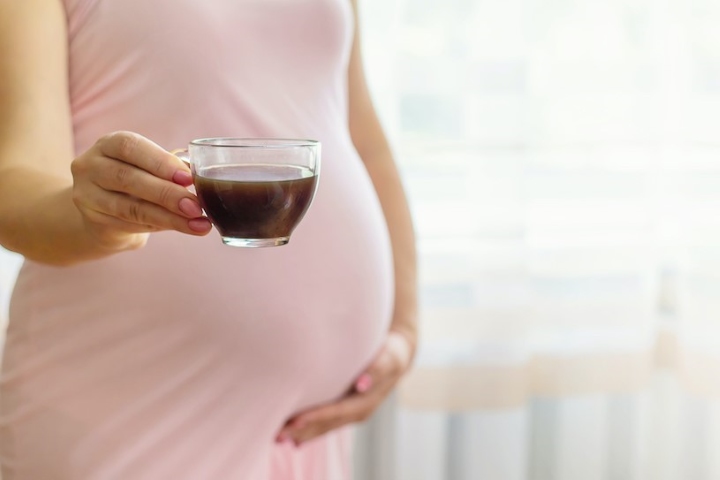Pregnancy is a crucial time for women, and many are often concerned about what they can consume during this period. Caffeine is a topic of much debate, and pregnant women often have questions regarding decaf coffee. In this article, we will dive into the details of decaf coffee, its caffeine content, and whether it is safe for pregnant women to consume.
In This Article:
- Is It Safe to Drink Decaf Coffee While Pregnant?
- What Is Decaf Coffee?
- What Is the Caffeine Content in Decaf Coffee?
- Can You Drink Decaf Coffee While Pregnant?
- How Much Decaf Coffee Can a Pregnant Woman Drink Per Day?
- Side Effects of Drinking Decaf Coffee While Pregnant
Is It Safe to Drink Decaf Coffee While Pregnant?
Pregnancy comes with a range of dietary restrictions, and one common question that often arises is whether it is safe to consume decaf coffee during pregnancy. Decaf coffee is a popular alternative for those looking to reduce their caffeine intake while still enjoying the taste of coffee. However, pregnant women must be cautious about their dietary choices, and caffeine consumption is one area where extra care is often advised.
What Is Decaf Coffee?
Decaffeinated coffee, also known as decaf coffee, is coffee that has undergone a process to remove most of the caffeine content. This process may involve the use of solvents, carbon dioxide, or water to extract caffeine from the coffee beans. Decaf coffee is a popular choice for individuals who enjoy the taste and aroma of coffee but wish to avoid the stimulating effects of caffeine.
What Is the Caffeine Content in Decaf Coffee?
Although the term “decaf” implies the absence of caffeine, it is important to note that decaffeinated coffee does still contain some amount of caffeine. However, the caffeine content in decaf coffee is significantly lower compared to regular coffee. On average, an 8-ounce (240-millilitre) cup of decaf coffee contains about 2–5 milligrammes of caffeine, whereas a regular cup of coffee can contain anywhere from 70 to 140 milligrammes of caffeine.
Can You Drink Decaf Coffee While Pregnant?
The consumption of caffeine during pregnancy is a topic of ongoing debate among healthcare professionals. While high levels of caffeine intake have been associated with adverse pregnancy outcomes in some studies, the evidence regarding the effects of moderate caffeine consumption, particularly from decaf coffee, is less clear.
Health organisations such as the American College of Obstetricians and Gynaecologists (ACOG) advise pregnant women to limit their caffeine intake to 200 milligrammes per day, which is roughly equivalent to one 12-ounce cup of regular coffee. Given the low caffeine content of decaf coffee, it is generally considered safe for pregnant women to consume in moderation.
However, it is important for pregnant women to be mindful of other components in decaf coffee, such as additives and sweeteners, which may not be as beneficial. Additionally, some individuals may experience gastrointestinal discomfort or sensitivity to certain compounds present in decaf coffee. As with any dietary choice during pregnancy, it is recommended to consult with a healthcare provider for personalised guidance based on individual health status and pregnancy considerations.
How Much Decaf Coffee Can a Pregnant Woman Drink Per Day?
Due to the potential risks associated with caffeine consumption during pregnancy, most healthcare professionals recommend that pregnant women limit their daily caffeine intake. The American College of Obstetricians and Gynaecologists suggests that pregnant women should consume less than 200 milligrammes of caffeine per day, which is roughly equivalent to one 12-ounce cup of regular coffee. Since the caffeine content in decaf coffee is significantly lower, it can be considered a part of the daily caffeine allowance without exceeding the recommended limit. Nevertheless, individual tolerance levels can vary, and some pregnant women may choose to further restrict their decaf coffee intake based on personal preferences and medical advice.
Side Effects of Drinking Decaf Coffee While Pregnant
Gastrointestinal Issues: Some women may experience gastrointestinal discomfort after consuming decaf coffee, such as acid reflux or stomach upset.
Iron Absorption: Caffeine, even in small amounts, can inhibit the absorption of iron. Since pregnancy already increases the body’s demand for iron, it’s important for pregnant women to be mindful of their caffeine intake, including decaf coffee.
Heartburn: Decaf coffee may still trigger heartburn in some pregnant women due to its acidity.
Anxiety and insomnia: While decaf coffee contains less caffeine, it’s not completely caffeine-free. In some cases, even the small amount of caffeine in decaf coffee can contribute to anxiety or disrupt sleep patterns in pregnant women.
Fluid Intake: Consuming decaf coffee should not replace the intake of essential fluids like water, which are crucial for staying hydrated during pregnancy.
Nutrient Intake: While decaf coffee itself doesn’t contain significant nutrients, excessive consumption may lead to displacing nutrient-dense beverages from the diet.
Pregnancy-Related Conditions: Pregnant women with certain health conditions, such as gestational diabetes or high blood pressure, should consult their healthcare provider regarding decaf coffee consumption.
Allergic Reactions: Some individuals may be sensitive to certain compounds present in decaf coffee, leading to allergic reactions. Pregnant women should be cautious if they experience any allergy-related symptoms after consuming decaf coffee.
Conclusion
Decaf coffee can be a comforting and enjoyable beverage choice for pregnant women. With its reduced caffeine content, it provides a way to savour the taste of coffee without the potential drawbacks of excessive caffeine intake. However, each woman’s tolerance and sensitivity to caffeine can vary, so it’s advisable to consult with a healthcare provider to determine individual caffeine limits during pregnancy.
In conclusion, while decaf coffee is generally considered safe for pregnant women, it’s important to be mindful of your overall caffeine intake and to listen to your body’s signals. As with any dietary choice during pregnancy, moderation and informed decision-making are key.
Sources:













